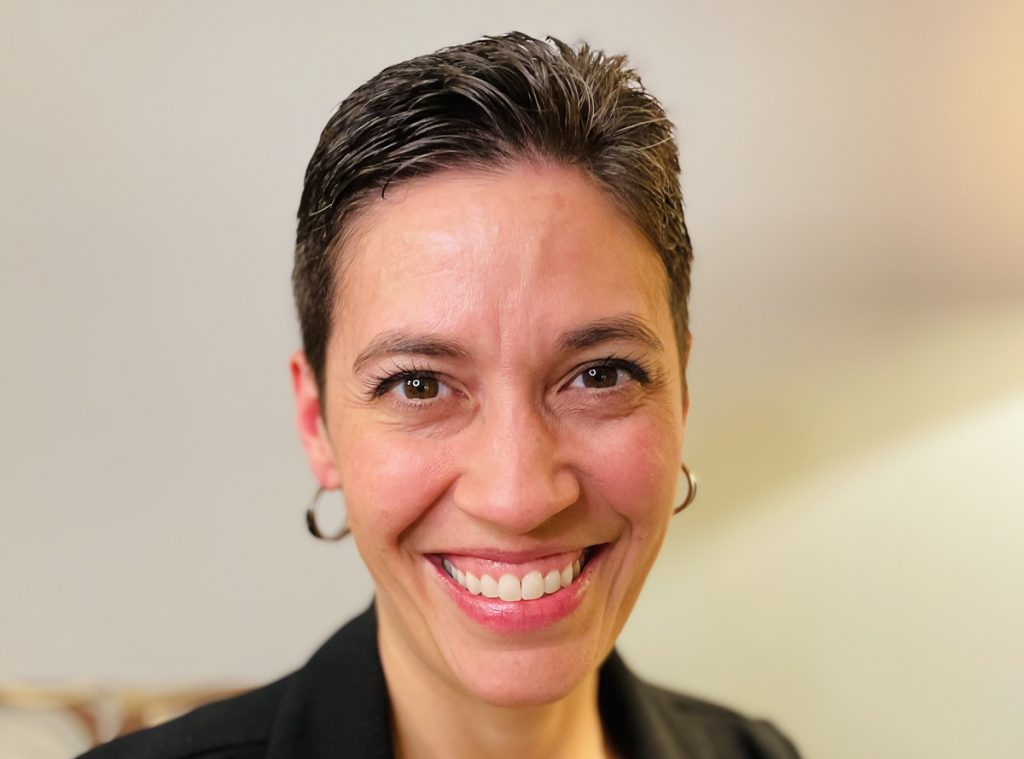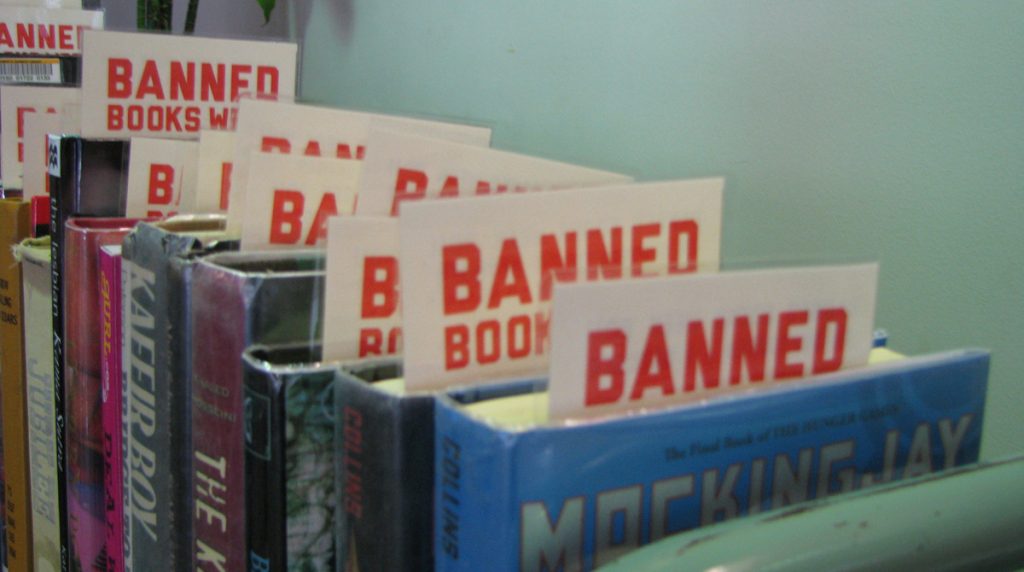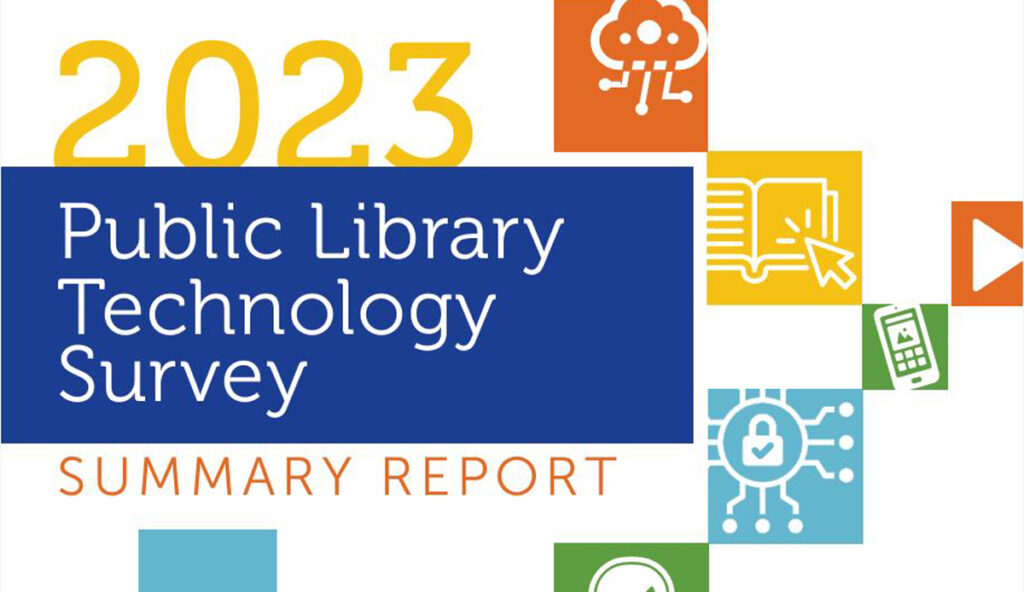Renee Greenlee was one of 10 librarians honored in 2022 with an I Love My Librarian Award from the American Library Association. But just months after receiving the award, Greenlee resigned from her position as director of Vinton (Iowa) Public Library, citing complaints that she received from the community due to the library having LGBTQ+-themed books and LGBTQ+ staff. She had only been with the library for about seven months total.
Greenlee isn’t the only librarian in the United States to resign from their jobs in recent months after receiving pushback over books by or about Black, LGBTQ+, and other marginalized persons. Some have also experienced threats of violence and harassment—all for standing up for the freedom to read.
Greenlee spoke with I Love Libraries recently about her experiences; the toll it took on her, her family, and library staff; and what librarians can do if they find themselves in similar circumstances.
How long were you at Vinton Public Library? And when did the troubles begin?
I started November 8, 2021, and my last day was June 3, 2022.
The first thing that happened was when a community member addressed the library board during its March 2022 meeting. That was the first I had heard of anything. Nobody had come to me at all [before then].
The uproar was about LGBTQ+ books in the library. Were any books singled out in the complaints?
During my time there, no particular books were singled out—just general LGBTQ+ materials. They did highlight books that have transgender characters and themes. That was a point of contention for them, but they didn't specify. It's interesting because in the statement to the board in March, [the community member] specifically said, “I am not asking that any books be banned or even removed.” It was kind of like they were, in a way, protecting themselves. They were asking for a balance of materials on the shelves. If we had a book about a transgender person then we had to have a book about people or children who are created as male or female from birth for life. They were asking for a one-to-one balance. It was kind of an interesting ask how they put it. I would call it a blanket challenge, you know what I mean? And not only did they blanket challenge LGBTQ+ books, but they challenged LGBTQ+ staff; just them being on staff. It was really disheartening and shocking. I was very taken aback.
Had you experienced anything like this prior to coming to the library?
When I was at Marion (Iowa) Public Library, our programming team and others put on a Pride fest together with local teens. They wanted to do it for the community. We had a drag queen storytime and several Iowa-based organizations that are LGBTQ+ allies came and setup booths at the library. It was well attended, but we did have some pushback from people in the community, as well as from people outside the community who kind of trolled us. I believe it was handled by the director, so I don't feel like it got to a bad place there.
How was it handled in Vinton? Did you have some support in the community?
I did. There was support from a lot of people. But the thing that was hard was.… Well, there were a few things.
A library board member gave me some trouble during this time. I felt that the rest of the board was supportive of me, but they just didn't speak out or stand up for me or for library values. I'm not sure if it's because they didn't know how to go about doing it or being in a small community, they didn't want to step on people's toes. I had a lot of good connections with community members. When all of this came out publicly in April, people were getting concerned and came to that [month’s] board meeting to show support, so that was nice.
But I do think a lot of it has to do with the small community aspect. They're such close neighbors with each other, and they know and see each other on a regular basis. They had to maintain decent respectful connections with each other, and they may have had a hard time rocking the boat. That's how I perceived it.
Was there a breaking point for you?
There was. After the March board meeting, I tried to get a statement of ethics for board trustees in place because of that little bit of trouble with one of the board members. I wanted to make sure that the board members understood what their roles were and that they needed to be supportive of what the library stands for. I also wanted to get the bylaws changed to include language that states that public speakers can't say things that are discriminatory or harassing. I wanted to get that in place before the next meeting.
At the April board meeting, I gave a response regarding the statement [given at the March meeting]. After that, I was like, “Okay, I think we can move on from here, because I answered what the concerns were and had it backed up with research and data and things like that.” I felt really good about that. Then at the May meeting, the same board member was still going against [the new statement of ethics]. At that point, I thought it was an uphill battle that I didn't feel I could succeed in. That was pretty much the turning point for me. I was like, that's it. I felt like the board understood what needed to happen, but they just were not acting on it in a way that made me feel supported.
How did the rest of the library staff react to this situation? What was the atmosphere like at the library during this time?
After the March board meeting, I talked to each of my staff members one-on-one, because I wanted them to hear from me about what had been said before hearing it from anyone else in the community. They were very disappointed. I mean, to be singled out for just being who they are; that's who they are. There was a lot of stress. I was upset. I was angry. These were my colleagues. These are people I had grown to really like, and I think they felt the same way about each other. We were protective of each other. I think a lot of us were angry and upset and didn't know what to do, I guess. How do you fight people just not wanting you because you're you?
It must have taken a mental and emotional toll on you and your family, as well.
Yes, it did. I have immediate family members who are part of the LGBTQ+ community. I have a transgender child, and I have a gay child. Not only was this disheartening just because it is itself, but it is especially when you have that history in your own life. I was angry for my kids, too. It wasn't right. I took this home with me every night, and it was a very high-stress situation. It didn't take long for it wear on my mental health and to reach a point where I was like, “You know what? If this continues longer, I'm even willing to leave without having a backup to a next position.” I know I'm lucky to be able to say that and to have that support and privilege with my own family. I know some people don't, but it was not a situation I wanted to stay in much longer at all.
Do you have any words of advice for any other librarians or library workers who might be experiencing similar challenges?
Again, I don't want to make any judgments on anyone else's lives or the privileges I have in life versus what other people have, but if they can, to the best of their ability, uphold those values. It's so important that we have public libraries that are accessible to everyone with books that are accessible to everyone, because if we don't, we're in a world of trouble. I know that for some librarians it can be hard, because they don't have those support systems and they don't feel like they can stand up to challenges against staff or against books. But as public librarians, I feel like we signed up for this. And not to get into too much “vocational awe” or that we’re these heroes or anything, but we do have a purpose, and people rely on our purpose. People rely on us to help them access what they need.
You're at Cedar Rapids (Iowa) Public Library now?
I am, yes. Cedar Rapids is my hometown, and while all of Iowa still needs work—there's not one place that is free of things like this—I feel like Cedar Rapids is more welcoming. And the library: I feel like I'm definitely making a home there. It was a good move. I'm a programming librarian now, and I am really happy to meet the community and use my talents and passions to help them as much as possible. I'm grateful to be where I am now.
Learn more about how you can help protect the freedom to read at the Banned Books Week website.



